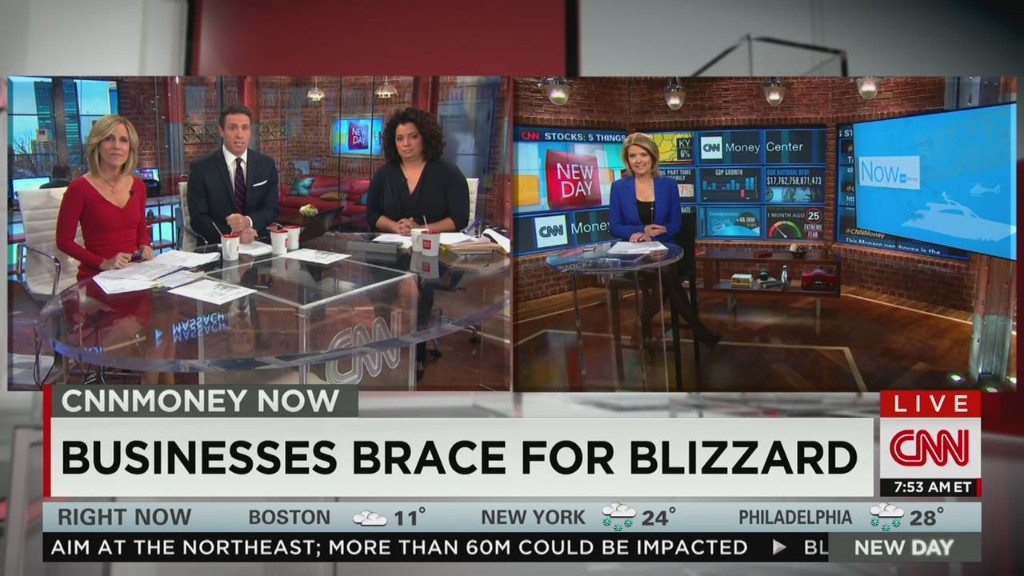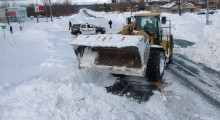
When a blizzard strikes, it's not all fun and games with snowmen and sledding.
A major snowstorm can be a big disruption to the economy, leaving some buried in losses while creating opportunities for others.
 |
| Cleaning up a snowstorm is expensive. |
"From a retailer perspective, it's devastating," said Britt Beemer, CEO at America's Research Group. Retailers lose 85% of their business, he estimates. If this week's big storm shuts down travel in the Northeast, it could have a $1 billion impact.
Here are some of the winners and losers when the flakes start swirling:
Winners:
--Snow removal: Salt and sand trucks often start rolling before a storm begins, and the cleanup effort lasts long after it's over. That means overtime pay for snowplow operators and others involved in clearing the roads.
--Diners and dives: Many restaurants and shops may be pulling down their shutters as the snow piles up. But snowplow operators need a place to stop for coffee and a warm meal, so those local 24-hour diners can live up to their name.
--Hardware stores and gas stations: Nothing sells shovels like a snowstorm. There's also a spike in interest for ice scrapers, sand, salt, snow blowers and gas to run them. This intensified demand sometimes leads to price gouging.
--Grocery stores: What is it about snowstorms that inspires people to stock up on bread and milk? Grocery stores do brisk business, which means long lines at the register and empty shelves for the procrastinators. Don't be surprised if the line at the nearby liquor store is also longer than usual, too. But the pre-storm spike is usually offset by a lull once the storm hits, and the overall picture is mostly a wash for grocery stores, Beemer said.
There are losers, too:
--Cities, towns and states: Hours of overtime is good news for snow plow operators, but someone has to foot the bill. Even a small storm can set back a town by hundreds of thousands of dollars, and a big one like this can tally in the millions. (New York, for example, puts 1,800 plows onto the city's streets.) Local governments also have to fuel and repair the trucks, fill them with salt and sand, and -- when it gets really bad -- deploy National Guard troops to rescue stranded people.
--Hourly workers: For every boss who urges employees to travel only if it's safe, there's another who pushes employees to come in. After all, someone needs to stock the shelves and run the register, especially if there's a spike in business due to the storm. But workers can't help it if they're snowed in or need to stay at home with the kids if school is canceled. Hourly workers don't get paid when they miss a shift, so that means they're out a day's pay.
--Victims of accidents: Slippery roads mean accidents -- ranging from multi-vehicle pileups to minor slips and falls on an icy sidewalk. Costs can pile up for car repairs and injuries.
--Theaters & restaurants: Many people just want to avoid the spills and accidents and stay home to watch a movie from the couch. But that also means they might have canceled a trip to the movie theater or to that fancy restaurant for the dinner they had planned.
--CNNMoney's Christine Romans and Logan Whiteside contributed to this report
